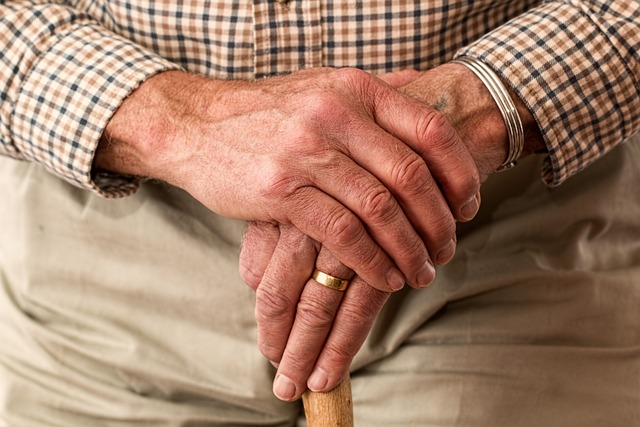The article discusses the significant enhancement of in-home health monitoring for the elderly through the integration of Elderly Companion Services. These services address both the physical and emotional well-being of seniors by providing social interaction and engagement, which are crucial for their mental health. Advanced technologies enable real-time monitoring of health data, medication reminders, telehealth access, and more, all managed by attentive companions who ensure the systems are used effectively. This combination not only promotes independence among the elderly but also offers peace of mind to their families, as they know their loved ones are well-cared for. The consistent presence of a companion can alleviate feelings of loneliness and isolation often experienced by older adults. The article concludes by emphasizing that the effectiveness of combining health monitoring with compassionate eldercare services ensures seniors can age in place comfortably, with their dignity preserved. Elderly Companion Services are highlighted as a vital component of modern eldercare, offering comprehensive support to enhance the overall quality of life for seniors. These systems have evolved to be user-friendly and are designed to improve healthcare outcomes by preventing unnecessary hospital readmissions, thus reducing the burden on caregivers and healthcare facilities. The integration of these services with health monitoring technologies represents a transformative role in the care of aging individuals, fostering a holistic approach that respects the privacy and preferences of the elderly.
In-home health monitoring has emerged as a transformative solution for the elderly, blending technology with compassionate care. This article delves into the multifaceted benefits of these systems, particularly for seniors who benefit from the added layer of companion services. We’ll explore how modern in-home monitoring systems enhance safety and autonomy while providing emotional support tailored to the needs of older adults. Join us as we navigate the features and technologies that are reshaping elderly care, ensuring a more independent and secure lifestyle within the comfort of their own homes.
- Navigating the Benefits of In-Home Health Monitoring for the Elderly with Companion Services
- Understanding the Features and Technologies of Modern In-Home Health Monitoring Systems
- The Role of Companion Services in Providing Emotional Support to Seniors with Health Monitoring Solutions
Navigating the Benefits of In-Home Health Monitoring for the Elderly with Companion Services

In-home health monitoring for the elderly has evolved significantly, offering a suite of benefits that enhance both their quality of life and safety within their own residences. The integration of companion services into this framework is particularly transformative. These services provide a form of social interaction and engagement that is crucial for maintaining cognitive and emotional well-being in seniors. With advanced technologies, elderly individuals can receive real-time health data monitoring, medication reminders, and even access to telehealth services, all of which are facilitated by compassionate and attentive companions who ensure the smooth operation of these systems. This not only fosters independence but also gives families peace of mind, knowing their loved ones are cared for around the clock. Moreover, the presence of a consistent companion can alleviate feelings of loneliness or isolation, which are common yet preventable challenges faced by the aging population. The combination of health monitoring and companion services is proving to be a powerful tool in maintaining the autonomy and dignity of older adults, allowing them to age in place with dignity and comfort.
The synergy between in-home health monitoring technology and companion services tailored for the elderly is a testament to the strides made in eldercare. These innovative solutions enable seniors to lead safer, more fulfilling lives by providing them with the necessary tools to manage their health conditions effectively. Companions not only assist with daily activities but also offer a vital human connection that can be life-enhancing. This holistic approach ensures that physical health is complemented by social interaction and emotional support, which are equally important for overall well-being. The seamless integration of these services into the home environment is a significant step forward in eldercare, offering a personalized touch that respects the seniors’ preferences and privacy while ensuring they have access to the care they need.
Understanding the Features and Technologies of Modern In-Home Health Monitoring Systems

Modern in-home health monitoring systems are equipped with a suite of features designed to support the elderly and those with chronic conditions in maintaining their independence while ensuring their safety. These advanced systems often incorporate sensors and wearable devices that can detect falls, monitor vital signs such as heart rate and oxygen saturation, and track daily activities. The data collected is transmitted in real-time to healthcare providers or family members, enabling timely interventions should an abnormality be detected. Additionally, these systems may offer medication reminders, telehealth capabilities for virtual doctor visits, and two-way communication for immediate assistance. Elderly companion services are a significant component of these systems, providing social interaction and companionship which are crucial for mental well-being. The integration of artificial intelligence allows the system to learn the user’s habits and behaviors, adapting to their unique health needs over time. This proactive approach to monitoring and care not only enhances the quality of life but also reduces the burden on caregivers and healthcare systems by preventing hospital readmissions and providing peace of mind for all parties involved. With the continuous evolution of technology, these in-home health monitoring systems are becoming increasingly user-friendly and accessible, ensuring that the elderly can benefit from cutting-edge healthcare solutions right within the comfort of their own homes.
The Role of Companion Services in Providing Emotional Support to Seniors with Health Monitoring Solutions

The integration of companion services with health monitoring solutions for the elderly has proven to be a pivotal development in ensuring their well-being. These services extend beyond mere medical oversight, offering a layer of emotional support that is crucial for seniors’ mental health. Trained companions provide not only a consistent presence but also engage with seniors in meaningful ways, fostering a sense of connection and belonging. This social interaction can significantly reduce feelings of isolation and loneliness, which are common challenges faced by the elderly. The companions are equipped to monitor the emotional state of their charges, offering comfort, encouragement, and an empathetic ear, which complements the medical data collected by health monitoring devices. This dual approach ensures a holistic approach to senior care, where both physical and psychological needs are met, leading to improved quality of life.
Moreover, the role of companion services in coordinating with healthcare providers cannot be overstated. They act as a liaison between the seniors and medical professionals, relaying important health data and communicating any changes in the senior’s condition or emotional state. This real-time feedback loop allows for timely interventions by healthcare providers, ensuring that any potential issues are addressed promptly. The presence of a compassionate companion who understands and respects the senior’s privacy and preferences further enhances the efficacy of health monitoring solutions, creating an environment where seniors can confidently adapt to the technology designed to assist them. This symbiotic relationship between companion services and health monitoring solutions is instrumental in promoting the independence and dignity of aging individuals.
In conclusion, in-home health monitoring assistance, particularly for the elderly through companion services, represents a significant advancement in healthcare. The integration of advanced technologies within these systems not only promotes medical vigilance but also enhances the emotional well-being of seniors by providing consistent companionship. As outlined, these services offer tangible benefits to older adults, enabling them to maintain independence while ensuring their health is monitored effectively. The future of elderly care appears to be a harmonious blend of medical oversight and social interaction, underpinned by the commitment to improve quality of life through innovative solutions.
